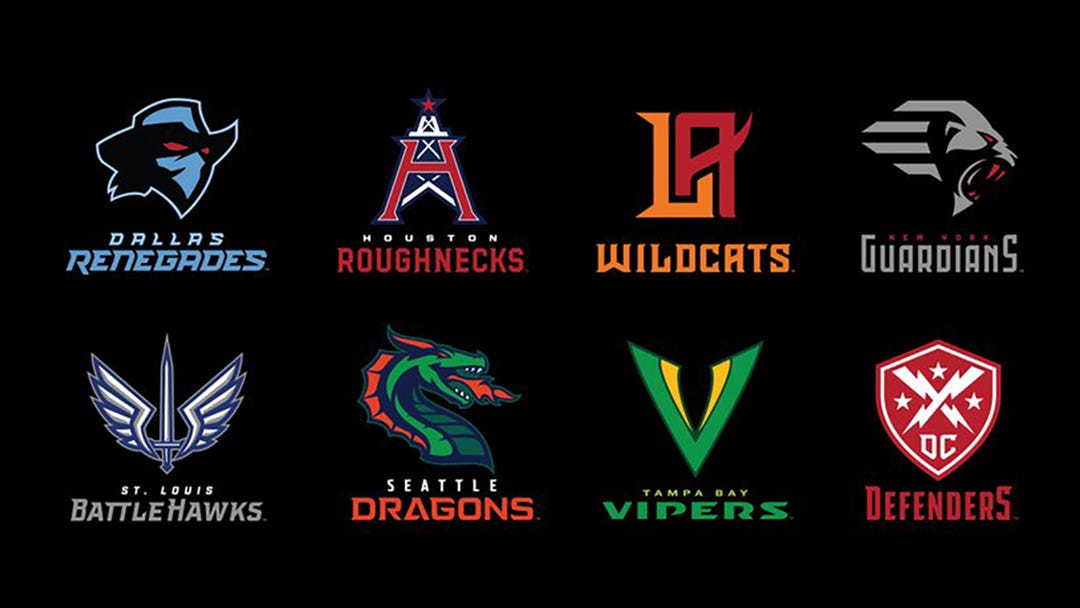Inbox +1
Spider-Man Split, Disney+ Weekly, Genesis Mini, KNEWZ, Lucky XFL, Batbot
I’m back. And very behind on email. So I’m sending you one. Lots to link to.

The Amazing(ly Stupid) 'Spider-Man' Standoff
Borys Kit with the details on Sony pulling the Spider-Man character back away from Disney — first, the backstory:
Disney and Sony were in different places when the idea of a co-operation was broached in 2014. Sony was coming off of two successful but widely derided Amazing Spider-Man pics and was seen as squandering the most popular Marvel hero. Marvel, while successful, was still finding its footing in its “phase two” of movies, jumping from a nadir with Thor: Dark World to a zenith with Guardians of the Galaxy.
It was in this environment that then Sony Pictures Entertainment co-chairperson Amy Pascal reached out to Feige and over lunch made a proposal. What ensued was a very simple arrangement. So simple, say insiders, that the deal was only a four- to five-page document. Sony would loan Spider-Man out for one film, Captain America: Civil War, and in return, Sony would get Feige’s producing service for two movies. The deal was later revised to include both Avengers: Infinity War and Endgame. “You have to remember, Marvel wasn’t in the same place as it was now. There was still a question of how far could this ‘superhero thing’ go,” says one insider familiar with the deal.
Disney did not get a producing fee nor did Feige for the initial deal, say multiple insiders. “Just getting Spider-Man in even one of their movies at the time, that was a stem cell infusion for Marvel,” notes a source regarding the company’s willingness to make a deal at the time.
There was also the unique merchandising arrangement. Sony had earlier relinquished the merchandising rights to Disney for a one-time payment of $175 million. Also in the deal, insiders note, was a provision that saw Disney making a yearly royalty payment to Sony that was amounting to around $30 million a year. Sources say that Disney tied the royalty to the performance of the Feige-produced movies; the better the pics performed, the lower the royalty. (It is unclear whether this will change going forward.)
Everyone knows that Sony benefitted from Disney letting Feige work on the Sony Spider-Man movies, but it is interesting to think about the flip side about what Disney got out of it too. A real win-win. And yet…
And then there was Phil Lord and Chris Miller's Spider-Man: Into the Spider-Verse, the animated film that became one of 2018’s critical darlings and won the best animated movie Oscar. The feeling from Sony was that it bounced back to a place where it could strike on its own. “Tom is thinking ‘Okay, we’ve learned everything we need to from Kevin’s playbook. We did Venom on our own and we did Spider-Verse,'” comments a Sony insider.
While Venom may have performed well at the box office, it’s a bad movie. Spider-Verse, by all accounts, is a great movie (I haven’t yet seen it), but obviously very different from what makes for a great, live-action action film. That these two things gave Sony confidence to go alone at best seems sort of silly, at worst seems foolish. Will star Tom Holland go along with this? Anyone else involved with the Feige Spider-Mans?
And one more detail from a different take:
Under an expiring agreement, Disney received a small percentage of the box office revenue in return for lending creative assistance on the Holland movies. Sony shouldered the production costs. In negotiations in recent months, Disney pushed for a much greater percentage of the revenue in exchange for paying a share of the production costs.
Is this just some elaborate ploy to get Disney to buy Sony (the movie studio, at least)? Did Sony wait until Disney set Spider-Man up as a key cog in the go-forward MCU strategy? It sort of feels like it… That, I would respect! With great power…
Disney+ to Release Episodes Weekly
Speaking of Disney, newsflash: they’re smart. Matt Webb Mitovich:
TVLine hears that Disney+ episodes will be released on a weekly basis, versus the all-at-once “binge” model often employed by rivals.
Is this a welcome respite for those who have felt a need to “stress-binge” full seasons ASAP upon release (lest they, for one reason, get spoiled by those who watch faster)? Or is it, as some see it, a “cash grab” by the House of Mouse? A way to force month-to-month subscriptions and foil those scheming to sign up, binge, and bail?
This sounds like a good idea. One Netflix should experiment with in various capacities. (Though I don’t think this has to be or should be a black or white issue. Some shows are better binged, some better weekly, some morph into the latter with popularity.) And they sort of are…
[via Gavin Purcell]

The Sega Genesis Mini Builds on What Made Nintendo Minis Great
Andrew Webster:
What’s most remarkable about the Genesis Mini is the attention to detail. The PlayStation Classic felt disappointing mostly because it was a step back from Nintendo’s offerings in a lot of ways. It still had no home button, and it didn’t add any new quality of life features. Sega not only nails the basics, but it has made some welcome and notable changes. Hold the start button, and you can return to the system’s main menu, instead of having to get up and hit the reset button on the console itself. You can also display the sizable library as if the games were on a bookshelf, browsing the spines. It sounds like a small thing, but it’s surprisingly nostalgic.
And then there’s perhaps my favorite feature: the menu music is a kickass new song from legendary Streets of Rage composer Yuzo Koshiro. According to Sega, he made the track using a YM2612 sound chip from the original Genesis. All of these elements — the home button, the huge library, the music — combine to make a product that actually improves on what Nintendo has done in many ways.
I’m a big fan of Nintendo’s nostalgic mini offerings, though I wish they had taken them further (and not bungled the roll out). And yeah, the reset button is ridiculous. (As are the wired controllers — that’s a little too nostalgic — though the Sega offering has those as well.) Nice to see Sega push things forward a bit more.
(Though Nintendo’s Switch Online NES offerings — in particular the quick “rewind” aspect — are fantastic. And SNES starts hitting tomorrow!)
News Corp Readies News App
Jeffrey A. Trachtenberg and Lillian Rizzo:
The articles on Knewz.com will link directly to publishers’ sites, and News Corp won’t take a cut of the advertising revenue the articles generate. News Corp also expects to share data with those publishers. The service will aim to promote original news reports rather than those that are quick rehashes of existing articles, and it will treat subscription news sites the same as nonsubscription sites in determining which articles to link to, the people familiar with the plans said.
News Corp isn’t striking licensing deals with media companies for the service, since it is simply linking out to their sites without hosting their content on its platform or charging for it, one of the people said.
You know you have a problem when the initial report about the product reads more like a parody. “Knews” would have been bad. “Knewz” is unrecoverable from, in the same way that Tronc and Quickster were. Such a self-own.
And none of that speaks to the product itself! Which sounds like… a web browser? A feed reader? Lulz.

A Second-Chance League and Its Not-My-First-Rodeo Commish
Dan Greene on Oliver Luck’s attempt to do the XFL right, this time:
For Luck, it would not be an entirely novel task. He had been 30, three years out of the NFL and working as a commercial litigation lawyer, when he was named the inaugural GM of the Frankfurt Galaxy, a founding franchise in the NFL-backed World League of American Football (later rebranded NFL Europe). There he sold Germans a strange foreign sport by turning games into spectacles of excess: hours-long pregame parties, blaring in-game deejays, sideshow acts like fire-eaters and jetpack flyers. And it worked. In 1992, the WLAF’s second season, Frankfurt was the only profitable franchise, its circus atmosphere soon becoming the league standard. By ’96, Luck was NFL Europe’s president.
In 2001 he returned stateside, to his wife Kathy’s hometown, where he served as CEO of the Houston sports authority. There he continued building, overseeing the opening of new homes for the Texans and Rockets. He lured an MLS franchise away from San Jose and jumped aboard as GM of the newly-christened Houston Dynamo, which won two MLS Cups in Luck’s five-year tenure. He then left to serve as athletic director at his alma mater, West Virginia, which in 2012 he steered from the dissolving Big East to the cash-sown pastures of the Big 12.
Some have called Luck a serial entrepreneur; he jokes that he can’t hold a job.
He is also, of course, the father of Andrew Luck, the recently and surprisingly retired quarterback. But perhaps his retirement shouldn’t be all that surprising given the above. In a way, it could be “like father, like son”.
As for the league itself:
The XFL had already tested its kickoff rule at a December scrimmage between two jucos in Mississippi. For that one Luck invited some NFL representatives, emblematic of how this XFL’s relationship with the NFL is markedly different from 20 years ago, when McMahon positioned himself as an adversary. Luck is open about his love for the more established league, from which he receives a pension and in which his eldest son stars. In December he even brokered a meeting at the NFL’s Manhattan office, where he and McMahon outlined for Roger Goodell the XFL’s intentions: innovate in the spring, don’t compete with the big boys in the fall. Luck says you’ll never hear him say a bad word about the old standard.
This sounds substantially better than the first attempt. And the elder Luck does seem to be the right person to run this. But those team nicknames and logos… yikes.

I mean… they look like the logos for one of those old football video games before they had the licenses to get the real teams’ logos.





